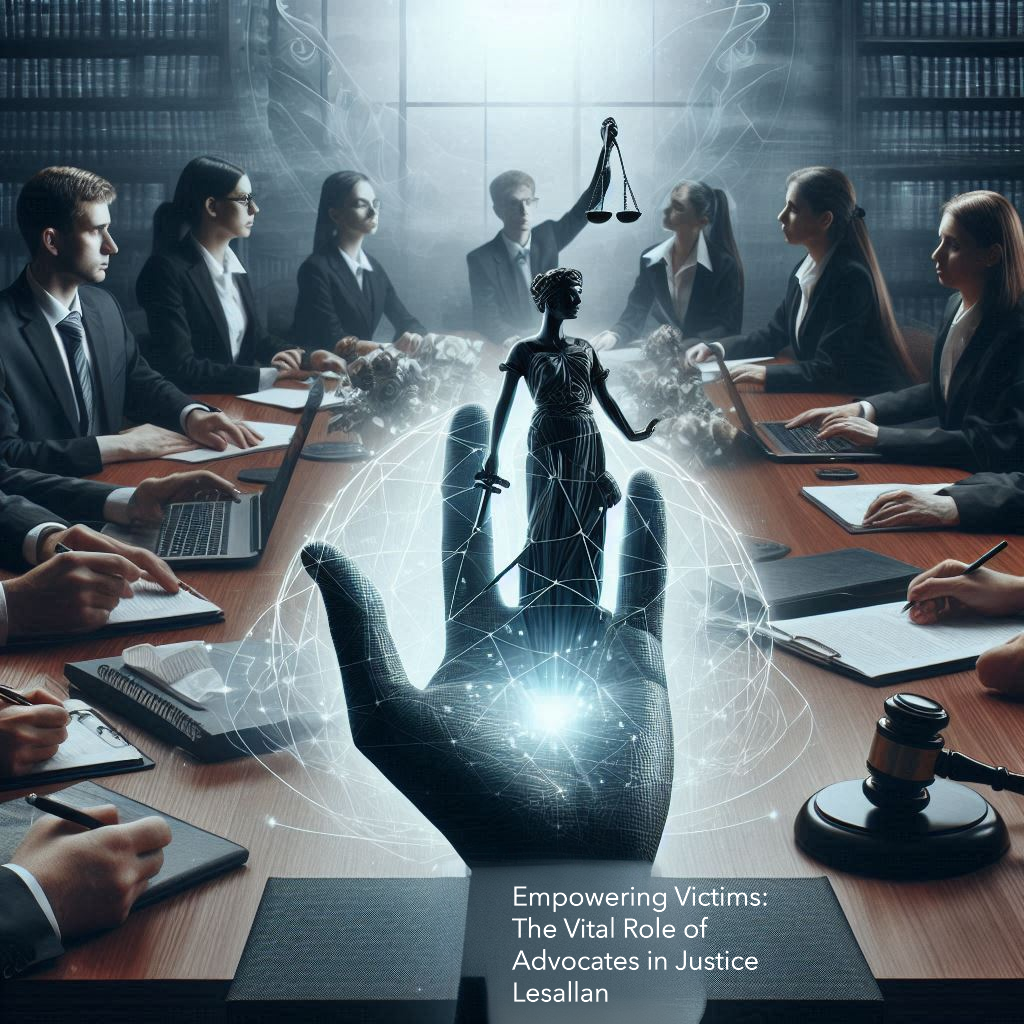Lesallan Bostron
Ohio Christian University
CJU1010 Introduction to Justice Systems (ONL24F1)
Dr. Quinn, Professor
August 7, 2024

Empowering Victims: The Vital Role of Advocates in Justice
Lesallan Bostron
Ohio Christian University
CJU1010 Introduction to Justice Systems (ONL24F1)
Dr. Quinn, Professor
August 7, 2024
Empowering Victims: The Vital Role of Advocates in Justice
Victims play an essential role in the criminal justice system. They provide essential information during the investigative stage, cooperate with law enforcement, and participate in court proceedings. However, the level of their involvement can have both positive and negative impacts on a case. For instance, uncooperative victims can hinder prosecution, while overly involved victims may complicate the legal process (Lonsway et al., 2008). As noted by Masters (2021), “The victim’s willingness to engage with the criminal justice process can significantly influence the outcome of a case” (p. 45).
Victim advocates are skilled professionals who provide support and assistance to crime victims. Their duties encompass offering emotional support, informing victims of their rights, aiding with safety planning, and helping with compensation claims. The responsibilities of a victim advocate can differ from case to case, depending on the individual needs and circumstances of the victim (Lonsway et al., 2008).
The role of a victim advocate can differ based on the unique circumstances of each case. For instance, in situations involving domestic violence, advocates often prioritize securing the safety of the victim and obtaining protective orders. Conversely, in cases related to financial crimes, advocates may offer support to victims by helping them navigate compensation procedures and manage interactions with financial institutions (Lonsway et al., 2008).
The responsibilities of a victim advocate may occasionally clash with other positions in the criminal justice system. While prosecutors focus on obtaining convictions, victim advocates prioritize the well-being of the victim, leading to potential differences in approach and priorities. Furthermore, victim advocates may, at times, question law enforcement methods to guarantee the protection of victims’ rights (Lonsway et al., 2008).
As individuals pursue studies in criminal justice, it is crucial to acknowledge the significant impact that both victims and victim advocates have on the justice system. Their roles are intricate and multifaceted, often demanding a delicate balance between legal procedures and compassionate support. By comprehending and valuing these dynamics, one can contribute to a fairer and more empathetic system that genuinely meets the needs of all individuals involved.
References:
Lonsway, K., Archambault, J., Sands-Belle, A., Smith, V., & Jones-Lockwood, A. (2008). End
Violence Against Women International (EVAWI) Effective Victim Advocacy Within the Criminal Justice System. https://evawintl.org/wp-content/uploads/Advocacy-in-Criminal-Justice-System.pdf
Masters, R. (2021). CJ: Realities and Challenges. McGraw-Hill Education.

